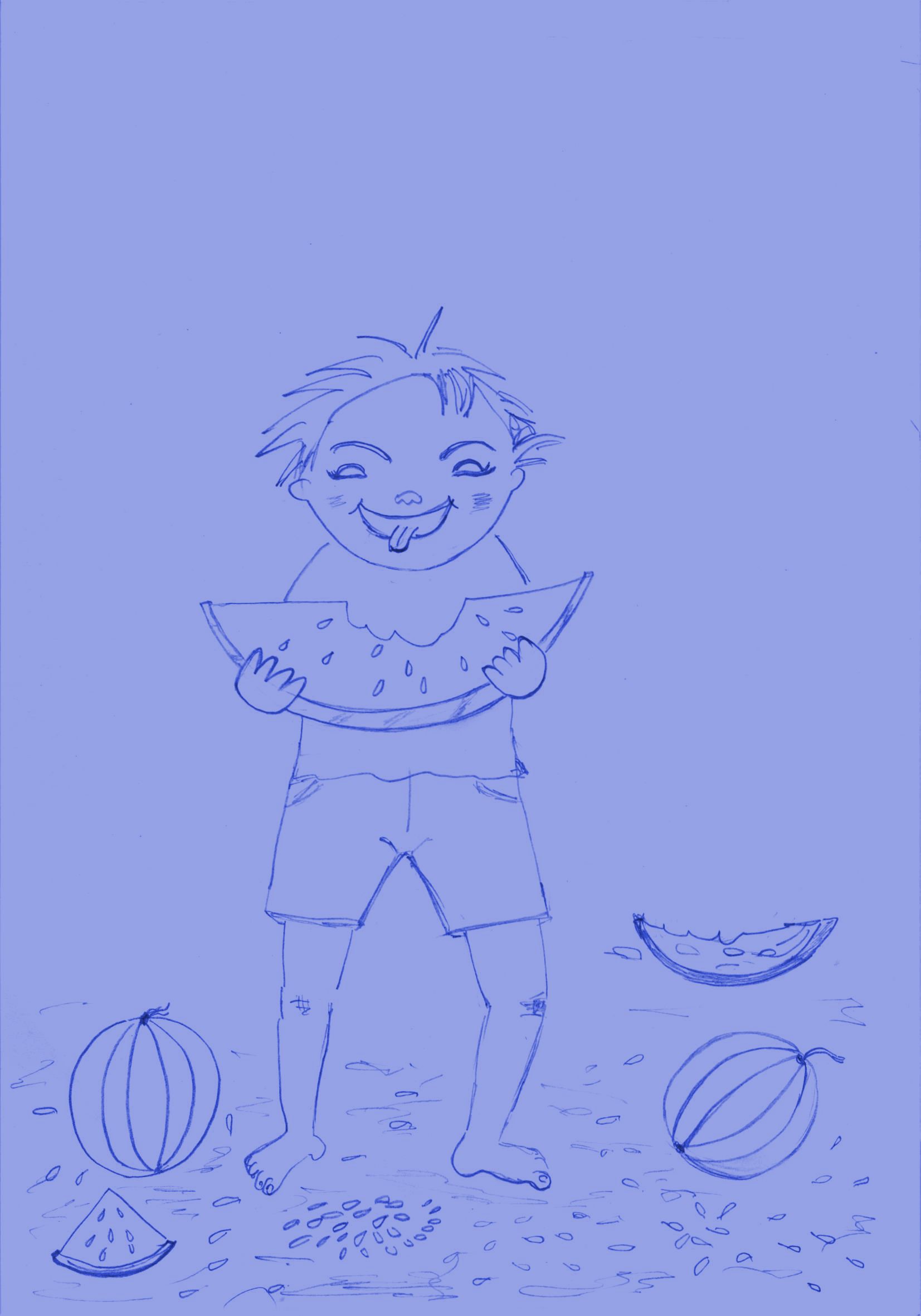The Watermelons Of Parra

Manohar was a young boy who lived in the Parra village in Goa that is famous for its watermelons. Every year at the end of the harvest season in the last week of May, the farmers would contribute some water melons and organize a water melon eating contest for the village children, wherein they could eat as much as they wanted. The children were told to spit out the seeds and not chew them.
Manohar grew up and went to IIT Mumbai. He came back after almost seven years. The childhood memory of the water melon contest was so potent in his mind that he went out to the market to buy some water melons.
He was disappointed and surprised at the small size available. He looked around for large water melons but found none. Further enquiry yielded that the large variety had vanished from the market and was not to be found anywhere. Disappointed, he went in search of the head farmer who used to conduct these competitions.
He came to know that the farmer was no more and his son had taken over. He was continuing the ritual of holding the contest, but the melons offered to the kids were of small size. He had realized that the large water melons fetched a better price at the market place. So he sent the best ones for sale and kept the smaller ones for the contest. So the best seeds were probably going to the consumers and hence down the drain. The seeds available now were of the substandard ones. In water melons the generation is just one year. Resultantly, in six-seven years the best water melons of Parra village were wiped out.
This is what most of us do. We keep the best for ourselves. When it comes to sharing, we give substandard stuff. This is not what our Indian culture and tradition talks of. We are a race that treats the guest as God. We are a race that sees God in every one, even a beggar. We talk of ‘Daridra Narayan’. We need to seriously work on regaining our lost value system, otherwise another fifty years hence there will be no one, who can even throw light on what India’s rich value-system has been!
Incidentally Manohar in the story grew up to be Manohar Parrikar (currently Chief Minister of Goa). While narrating this story, he made a very thought provoking addition to it. He said, unlike water melons, in humans, the generations change every 25 years or so. It will probably take us 200 years to realize what we are doing to destroy the DNA of our children. The moral fibre that we Indians have been known for is fast being eroded. The factors responsible are many and cannot be listed here due to paucity of space.
Sh. Parrikar went on to say that unless we attract our best people into the teaching profession, to groom and mentor our next generation, we are in for exactly what happened to the water melons. Of all the professions in the world, that of the teacher is the most estimable. The teacher has to impart to the students what is good and ennobling. This should be developed in all educational institutions.
Baba says, “You are born in society, you grow in society, and earn name and fame in society. You learn many skills from the society and develop intelligence, and thereby you gain reputation for being intelligent. You received all these precious gifts from society. Have anyone of you, young men and women, thought of showing gratitude to the society from which you got the name and fame? How are you expressing your gratitude to society? And as an expression of one’s gratitude, one should render selfless service to the society; it is one’s foremost duty.”
